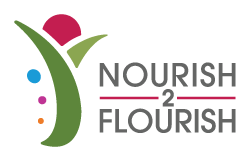Sports Injuries Can be a Blessing
Most athletes dread getting injured and, depending on the timing and severity, it can end a season abruptly. At the same time, it can be an opportunity to come back faster, stronger and more fit. It's normal to get frustrated and angry when an injury occurs, but attitude has a big impact on recovery and can make or break your return to sport.
I recently had an opportunity to work on my perspective with injury. One month after finishing Ironman Wisconsin, I had a half marathon on the schedule. This should not be an issue with proper Ironman recovery, but as noted in my IM race report, I had some issues on the bike, which led to my back locking up during the race. I pushed through it but my body was not happy. This was all on the left side and likely led to some compensation by my right side. During the half marathon, I felt something grab and I could no longer run. I wondered if I should walk the rest, which was over 11 miles, but knew that was not a good idea. I dropped out. The next day it was diagnosed as a muscle tear in either the right glute medius or the pirifomis. I was forced to take a rest from all but swimming and upper body weights for a week. Following that I could add the bike in and I should be running again within one month.
Surprisingly, I was not upset about the injury. I knew it was my body telling me that I needed to take a rest and work on my imbalances. Also, the timing could not be better. I have no races on the books until Boston in 2016. The half marathon that I was running was literally just for fun so I went to the finish line and cheered on my friends. I had done an Ironman in 2014 and 2015 with basically no off season. I never completely break from exercise but I like to do other things in the off season and work on my imbalances. Last year I didn't really take that break and still ran a lot. The new injury gave me the perfect excuse to take a break. It was somewhat relieving mentally as I didn't have to think about what workout I would do each day. I spent more time with my loved ones, which is another important element of the off season.
If you find yourself injured, particularly during a race, seriously consider if you should finish the race. Will it do further damage to your body, which will keep you out of commission longer? Then take a look at your life. Is there enough balance? If you are devastated emotionally about losing time from training, perhaps you are too focused on training and becoming borderline obsessed. If you are devastated physically, perhaps your muscles, alignment and movement patterns are out of balance. After finding a good practitioner to diagnose the injury and help your body repair, find a good physical therapist. Particularly one that can analyze your movement patterns and determine if there are muscle imbalances or problems with the firing order of your various muscles.
This is also a great time to take another look at your nutrition habits, particularly in the off season. Have you been eating more inflammatory foods, such as refined sugar (candy, baked goods...), processed vegetable oils (commonly used in processed and restaurant foods), gluten or other unhealthy fats? Has your consumption of healthy vegetables decreased? To help your body repair, you need to give it the appropriate nutrients. Musculoskeletal injuries require higher amounts of the following:
- Anti-inflammatory fats (fish oil, avocados, olive oil, flaxseed, raw nuts)
- Anti-inflammatory spices (turmeric, garlic, ginger, bromelain)
- Antioxidants (dark berries, green tea, dark chocolate)
- Protein (increase intake to 25-30% of total calories and take a full-spectrum amino acid around all workouts to help ensure my muscle are rebuilding)
- Zinc (sesame seeds, pumpkin seeds, oysters, cashews, shrimp)
- Copper (sunflower seeds, pumpkin seeds, cashews, shiitake mushrooms)
- Vitamin A (carrots, sweet potatoes, spinach, kale, fish, poultry)
- Vitamin C (red peppers, broccoli, Brussels sprouts, strawberries).
Bone fractures or injuries require even more nutrients. For additional information, read my paper on bone health.
Take care of your health first and your performance will follow. Our bodies tell us what they need, but we have to listen. If we don't listen to the cues, our body will scream out with the voice of an injury. If that happens, look at it as a great opportunity to focus on other activities and work on imbalances and weaknesses.



